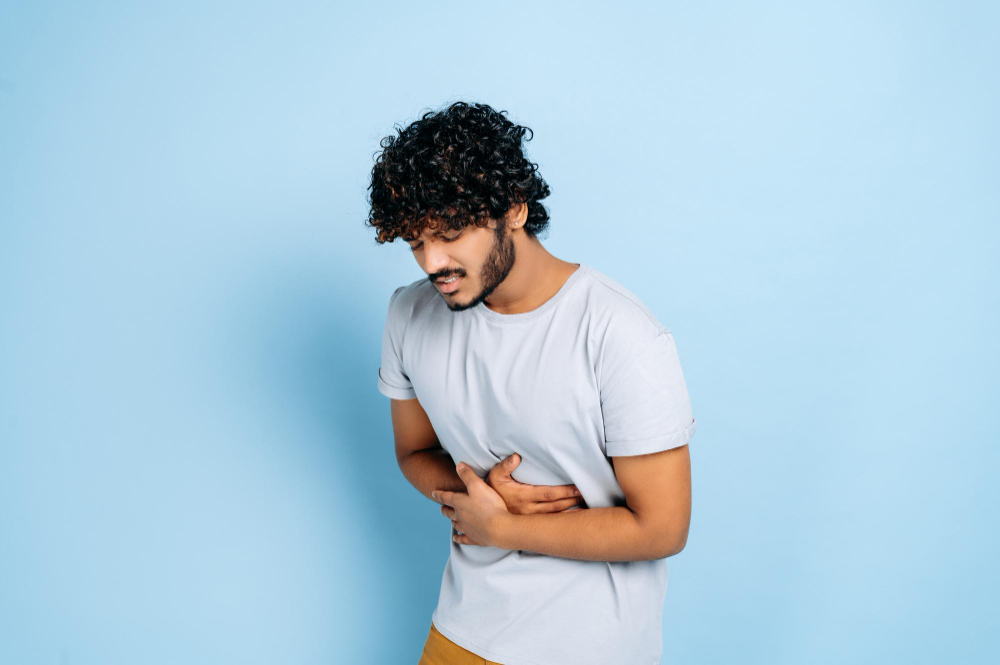Peptic ulcers are a common health issue in many parts of the world, including India. These painful sores can cause discomfort, but understanding them is crucial for effective treatment. Peptic ulcers form when the lining of your stomach or small intestine breaks down. There are two main types: gastric ulcers, which occur in the stomach, and duodenal ulcers, found in the small intestine.
Recognizing the significance of peptic ulcers helps in early diagnosis and treatment. Peptic ulcer symptoms such as burning pain, bloating, and nausea shouldn’t be ignored. Timely treatment can prevent complications.
To manage peptic ulcer symptoms, lifestyle and diet play a crucial role. Certain foods might irritate the ulcer, so knowing the right diet for healing peptic ulcer is vital. Foods that are easy to digest and don’t aggravate the stomach are preferred. Additionally, lifestyle changes like quitting smoking and limiting alcohol can make a big difference.
Underlying Causes and Symptoms of Peptic Ulcers
A primary cause of peptic ulcers is a bacterium called Helicobacter pylori. It’s quite common in India and can lead to ulcers if not treated. Another significant factor is the use of nonsteroidal anti-inflammatory drugs (NSAIDs), like ibuprofen, which are popular pain relievers.
There are many misconceptions about what causes peptic ulcers. For instance, stress and spicy foods do not cause ulcers. However, they can make peptic ulcer symptoms worse. It’s important to separate these myths from facts to avoid confusion.
Typical symptoms of peptic ulcers include burning stomach pain, bloating, and even vomiting. If you experience weight loss or severe pain, these could be alarming symptoms demanding immediate attention.
Comprehensive Treatment and Prevention Strategies
Treatment for peptic ulcers involves medication and lifestyle changes. Doctors may prescribe antibiotics to eliminate Helicobacter pylori. Proton pump inhibitors (PPIs) and H2 blockers help reduce stomach acid, offering relief and promoting healing. It’s important for patients to clearly understand these treatments and follow their doctor’s advice.
Traditional remedies are also common in India for treating ulcers. Some include herbal solutions like licorice root and soothing foods like bananas.
When it comes to diet, focusing on foods that support the healing process is crucial. Here’s a quick rundown of diet for healing peptic ulcer: – Eat small, frequent meals. – Include high-fiber foods like fruits and vegetables. – Avoid fried and fatty foods.
Stress management plays an important role in alleviating symptoms too. Techniques such as meditation, yoga, or even simple breathing exercises can help manage stress and peptic ulcers.
Consulting healthcare providers is paramount for effective management of peptic ulcers. A doctor can assess your symptoms, suggest medications, and outline a suitable plan. During visits, expect questions about your symptoms, lifestyle, and dietary habits.
Risks, Prevention Strategies, and the Importance of Awareness
If left untreated, peptic ulcers can lead to severe complications. An untreated ulcer might cause internal bleeding or perforate the stomach wall. This underscores the need for awareness and timely management.
Prevention is key. To prevent ulcers, focus on a balanced diet, avoid overusing NSAIDs, and maintain good hygiene to avoid H. pylori infections. Recognizing the differences between peptic ulcer vs stomach ulcer is also essential since treatment may differ.
Debunking myths is an essential step towards prevention. Knowing that peptic ulcers aren’t directly caused by stress or spicy foods empowers individuals with the right knowledge.
Encourage seeking medical attention for persistent or severe symptoms. With the right treatment and lifestyle adjustments, managing peptic ulcers is within reach, leading to a healthier life. Empower yourself with knowledge and take a proactive approach to health.
In summary, understanding the causes, symptoms, and treatment of peptic ulcers is vital. With the right diet for healing peptic ulcer, lifestyle changes, and medical care, you can manage and even prevent complications. Stay informed, consult your doctor, and don’t hesitate to seek help if you suspect a peptic ulcer.
